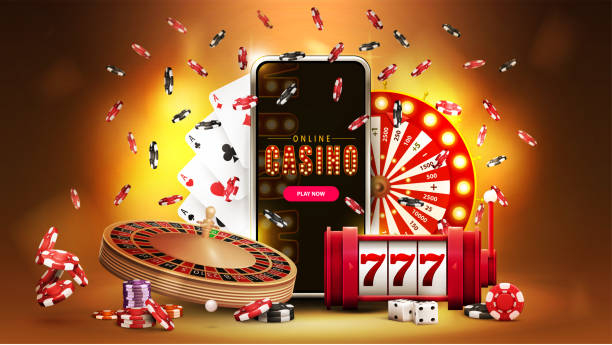For centuries, gambling has been a form of entertainment that brings excitement, strategy, and a bit of luck into the mix. From the grand halls of Monte Carlo to the neon lights of Las Vegas, casinos have always had a magnetic appeal. But the gambling industry has changed dramatically in the last few decades. With the rise of the internet, casinos have shifted from luxurious physical spaces to fully digital platforms, making games more accessible than ever.
How did we get here? And what’s next for the world of gambling? Let’s break it down.
The origins of casinos – where it all began
The concept of gambling is as old as civilization itself. Ancient Chinese, Egyptians, and Romans all had forms of betting, whether on dice, cards, or animal races. But the first official casino? That came much later.
1638 – The first casino
The world’s first recognized gambling house, Ridotto, was established in Venice, Italy. It was a government-sanctioned establishment designed to control and regulate gambling.
1800s – The rise of casino culture
By the 19th century, European casinos became hotspots for aristocrats and elites. Monte Carlo’s casino, which opened in 1863, became a symbol of luxury and high-stakes gaming.
1900s – Las Vegas takes over
The real explosion came in the 20th century with Las Vegas. The legalization of gambling in Nevada (1931) led to the birth of the world-famous Strip. By the 1950s and ‘60s, casinos had become full-scale entertainment hubs.
While physical casinos dominated for most of modern history, technology was about to change the industry forever.
How technology changed the game
Casinos are built on innovation. Whether it was the introduction of slot machines in the late 1800s or the arrival of electronic card games in the 1970s, the industry has always embraced new tech. But nothing reshaped gambling as much as the internet.
The birth of online casinos
The 1990s marked the start of digital gambling. The first real-money online casino launched in 1996, offering basic versions of blackjack, roulette, and slots. These early platforms were simple, but they proved one thing—people loved the convenience of gambling from home.
By the 2000s, things accelerated:
- Live dealer games brought real-time action with human croupiers, making online casinos feel more authentic.
- Mobile gaming turned every smartphone into a casino, allowing users to play anytime, anywhere.
- Cryptocurrency betting emerged, giving players anonymous and secure ways to gamble.
Why online casinos are so popular
What makes online gambling so appealing? A few key factors:
✔ Convenience – No need to travel; play from home or on the go.
✔ Bonuses and promotions – Online casinos offer better welcome deals and rewards.
✔ Game variety – Thousands of games, including ones not found in land-based casinos.
✔ Faster gameplay – No waiting for a seat at the table.
One platform that embraces these innovations is https://bangercasino-online.com/, offering a seamless gaming experience with a huge selection of slots, table games, and live dealers.
The most popular casino games and how they evolved
Casino games have always been a mix of luck, strategy, and skill. Some games date back centuries, while others are brand-new creations. Let’s look at how the most popular ones evolved.
Slot machines – from mechanical reels to digital jackpots
- 1895 – The first slot machine, the Liberty Bell, was created by Charles Fey. It had three spinning reels and a single payline.
- 1976 – The first video slot was introduced, replacing mechanical reels with a screen.
- 2020s – Online slots dominate the market, featuring themes, bonus rounds, and progressive jackpots worth millions.
Blackjack – a game of skill and probability
Blackjack has been around since the 1700s, evolving from a simple card game to one of the most strategic games in any casino. With the rise of online gambling, live dealer blackjack has become a favorite, allowing players to interact with real dealers in real-time.
Roulette – from European origins to online success
One of the oldest casino games, roulette dates back to 18th-century France. Today, online roulette offers variations like European, American, and even multi-wheel formats, adding a modern twist to the classic game.
Security and fair play – how modern casinos build trust
With the rise of online gambling, players need to trust that the games are fair and their data is safe. That’s why modern casinos use:
🔹 Random Number Generators (RNGs) – Ensuring fair and unbiased results in every game.
🔹 Licensing and regulation – Reputable casinos operate under strict laws to protect players.
🔹 SSL encryption – Keeping financial transactions and personal data secure.
For players looking for a reliable and secure experience, platforms like https://bangercasino-online.com/ follow industry standards, providing a safe place to enjoy online gambling.
What’s next for casinos? The future of online gambling
The gambling industry isn’t slowing down. In fact, it’s evolving faster than ever. Here are some trends shaping the future:
✔ Virtual reality (VR) casinos – Immersive experiences that make online gambling feel like real life.
✔ Artificial intelligence (AI) – Personalized game recommendations and smarter security systems.
✔ Blockchain technology – More transparency and faster transactions with crypto casinos.
As technology advances, casinos will continue to adapt, offering players even more ways to enjoy their favorite games. Whether you prefer the thrill of a land-based casino or the convenience of an online platform, one thing is certain—gambling is here to stay.
Final thoughts
The journey from brick-and-mortar casinos to online platforms has been nothing short of revolutionary. What started as exclusive gambling houses in the 1600s has transformed into a global digital industry. With online casinos offering more convenience, variety, and innovation than ever before, players have endless options to enjoy the thrill of gambling.
But whether you’re playing in a luxury casino in Vegas or spinning the reels on a smartphone, one thing remains the same—the excitement of the game. 🎰♠

